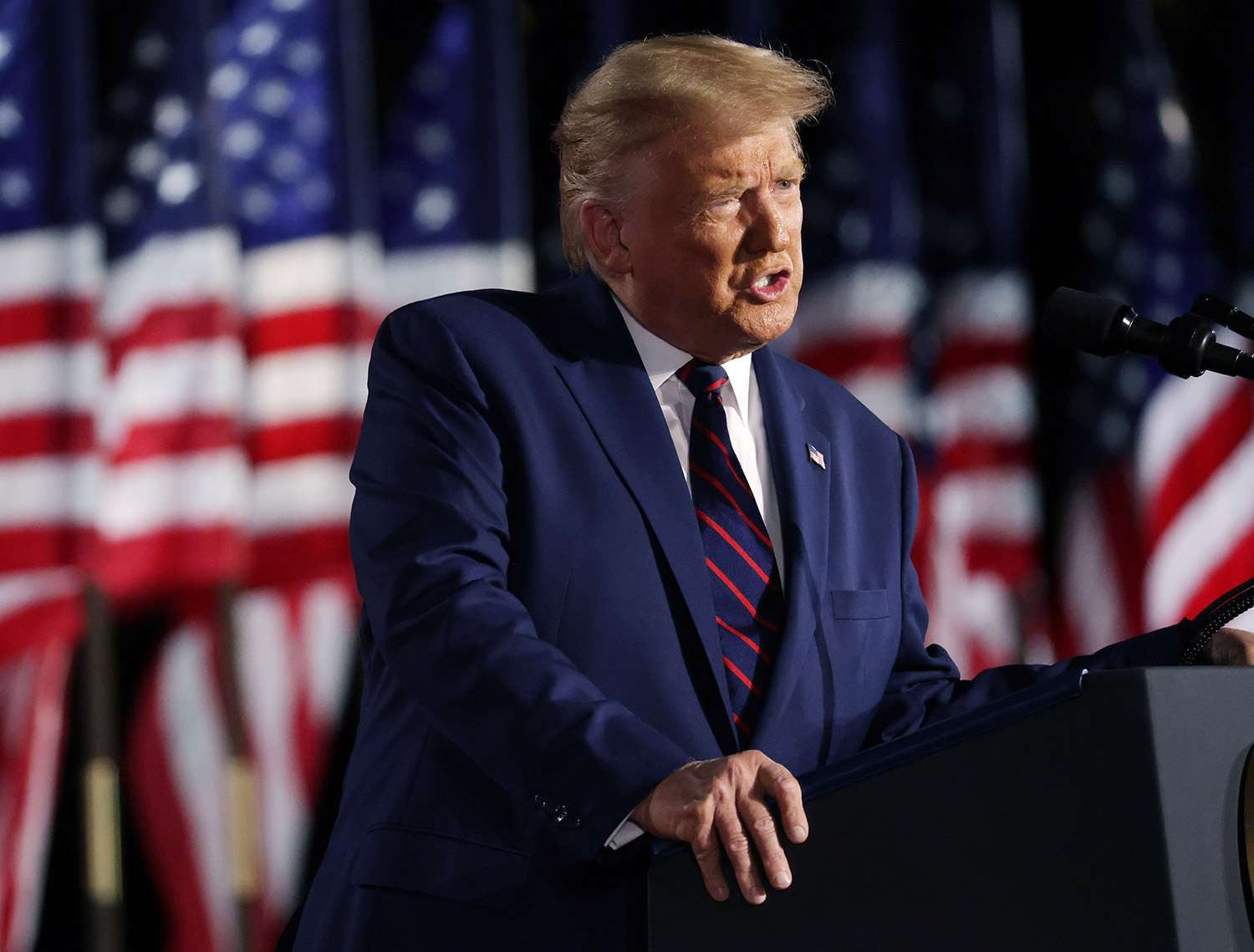Following the resignation of attorney Nathan Wade, who had a romantic relationship with Fulton County District Attorney Fani Willis, from the Georgia election interference case against Donald Trump, the trajectory of the prosecution remains uncertain.
Wade’s withdrawal allows Willis to proceed with the case, but questions linger regarding the public’s perception of the prosecution’s integrity, particularly in light of Trump’s ongoing attacks. Wade’s decision to step down was framed as an act in the interest of democracy and to expedite the case’s progress.
Trump (Credits: CNN)
In response, Willis expressed gratitude for Wade’s professionalism and acknowledged the challenges he faced, including threats and media scrutiny. She affirmed her commitment to pursuing justice in the case.
However, Trump characterized Wade’s resignation as a disgrace and reiterated his belief that the prosecution is a political ploy to undermine his presidential campaign. Trump’s legal team echoed these sentiments, citing prosecutorial misconduct by Willis and Wade.
Despite the resignation, the defense may still seek to appeal the judge’s ruling. Meanwhile, in a separate case in New York related to hush-money payments during Trump’s 2016 campaign, the trial has been postponed to mid-April to allow Trump’s lawyers more time to review evidence.
Fani Willis (Credits: Nationwide 90FM)
The events in Georgia underscore the unprecedented nature of the case, which began with allegations of election interference but has since been overshadowed by discussions of the personal lives of the prosecutors involved. Willis, who hired Wade to lead the investigation, has faced intense scrutiny over her relationship with him.
Although the judge did not find conclusive evidence of impropriety, he highlighted lingering doubts about the truthfulness of Willis and Wade’s testimony regarding the timing of their relationship. He emphasized the need for transparency and ethical conduct in the prosecution.
The case’s outcome remains uncertain as it navigates through legal challenges and public scrutiny. Wade’s resignation marks a significant development in a case that has captured national attention and raised questions about the intersection of law, politics, and personal relationships in the justice system.
